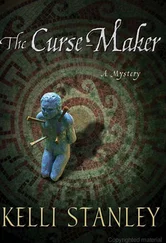Although he had entered the Party in 1958, and had worked conscientiously for the following thirty years, he was still only a middle-ranking accountant. In the Cultural Revolution, he joined a political cell that failed to keep up with the changing times, and became outlawed by a rival cell. He ended up marrying an activist from the cell that had outlawed his. He made love to his wife in their dormitory room as the bullets pelted through the sky outside. Neither of them had much knowledge of sexual matters, other than the little they’d learned from various swear words, so the wife didn’t become pregnant until their second year of marriage. The doctor told her that the child’s defects were caused by excessive sexual activity during her pregnancy.
When he reached fifty, he resolved to focus more of his energies on the task of abandoning his elder daughter. He started taking his work less seriously. The fortune tellers had told him that considering the year in which he was born, he would only succeed in getting rid of his daughter if it was certain that someone would take her home and look after her. So he never abandoned his daughter if he thought there was any danger she might starve to death, or come to any harm. His failure in abandoning her was clearly linked to the year in which he was born. He was convinced that if he had been born in the Year of the Tiger or of the Chicken, he would be holding a baby son in his arms by now.
One morning, he left her alone in an open field outside town. He hid himself behind a bush in the distance, and observed her for an entire day. When the sun was setting in the west, he gave up hope of anyone coming to her rescue, so, faint with hunger, he ran over to her, grabbed her in his arms and carried her back home. He endured all kinds of hardships for her. One day he read an article about an orphanage in a neighbouring town. He took a day off work, travelled to the town and deposited his daughter at the reception desk of the orphanage, claiming he had found her on the street. The director of the orphanage told him the child was not necessarily an orphan, and that she would have to be handed over to the public security bureau. In a panic, the father explained that he had wanted to perform a good deed and emulate Lei Feng, but could do no more, as he had a train to catch. So the director agreed to take the child to the public security bureau herself. The next day, when he was gazing out of the window by his desk, the police of the neighbouring town telephoned him and asked him to collect his child from their bureau. So he took another day off work, much to his leader’s consternation since it meant missing the department’s weekly Party meeting. That afternoon, he waved goodbye to his wife and his younger daughter, who was now two years old, and set off on a journey to bring his elder daughter home.
(‘You live in your own small universe,’ the blood donor tells the writer. ‘You’re stuck inside your mind, and this suitcase-like flat of yours. We’re growing further and further apart.’
‘What do you mean?’
‘We have different values. I have surrendered to reality and made a success of my life. You put on a show of arrogance, but you are a failure, you live off this world’s discarded dregs.)
Before abandoning his elder daughter, he always gave her a sleeping pill, afraid that if she were left awake, she might choke on her tears, or that her cries might attract a pack of wolves. Since she spent so much time out of doors, he even bought her a plastic coat to protect her from the rain. His wife was a typical Chinese woman. Each time he set off on a journey with his daughter in his arms, she always walked him to the door, her eyes filled with tears. Despite his repeated failures, she always managed to cry each time she waved him goodbye. She fully supported the course of action he had chosen to take. In the past, she herself had employed a go-between to arrange the sale of her elder daughter to an infertile couple, but unfortunately, when the couple discovered the child was retarded, they brought her back and demanded a refund.
The retarded child was subjected to an endless stream of trials and traumas, but always managed to escape with her life. Before she had taken her first step, she had survived two car accidents and a fall from a third-storey window. Later on, she found herself dropping from her bed onto the cement floor almost every night. Neighbours said that only a child who was blessed could survive so many accidents, and they predicted she would bring the family good fortune and prosperity. So for an entire year, the father gave up his attempts at abandoning her, and waited for his fortunes to turn.
But nothing happened, and the father became convinced once more that the future the lame man Zeng had predicted for him was cast in stone. The imminent end of his family line weighed heavily on his mind. He knew that if his wife exceeded her birth quota of two children, he would lose everything he had worked so hard to gain: his government job, his Party membership card, his room, his salary. The continued presence of his elder daughter in his family threatened every aspect of his existence.
In the end, he decided to take early retirement and concentrate all his waking hours on the mission to abandon his daughter. However, each time he tried to get rid of her, he felt his attachment to her grow deeper. In the past, he had hoped she would cooperate with him, and disappear quietly from his life so as to let him try again for a son. But as this hope diminished, she became his comforter and sympathiser. Although he caused her pain, she was the only person in this world who could forgive him.
As time went by, she became his closest friend. He couldn’t help but pour out his heart to her, telling her about his marital problems, his concerns about world affairs, and the heartache he felt for all the pain he’d caused her. Knowing that she could say nothing in reply, he felt free to use the foulest language in her presence. As he grew aware of the futility of his efforts, he slowly lost control of his thoughts. Each time he attempted to abandon her, he felt as though he were in fact abandoning himself and the future that had been destined for him. But he was still determined to keep trying.
Sometimes he felt that it was his daughter who was dragging him through the town, rather than the other way round. Before each of his attempts at abandoning her, he seemed to hear her say: ‘I consent to being abandoned. Over the years I have gained my own identity, and through your struggles with me you have learned some lessons about life. A father can fool a retarded child, but a retarded child can also fool her father. I have given a pattern to your life, a rhythm. You must understand that your mission will destroy you in the end. I have taught you things about yourself you would have preferred not to know. In a deranged world, only retarded people can find happiness. I share none of your commitments or responsibilities. I care nothing about the past or the future, or whether your sperm will ever meet another egg cell. I am not even sure whether I exist. If you were retarded, you would understand what I am saying. I wish you would give up this futile mission of yours. You’ve done your best for everyone. You have neither let me down, nor yourself down. There’s nothing more you can do.’
As people became caught up in the changes brought about by the Open Door Policy, they began to talk less about this father and daughter who spent their lives being separated, then reunited. But everyone knew who they were. Occasionally they would see a man with freshly washed collar and cuffs (you could tell at a glance he was a cadre) emerge from behind the municipal museum, holding a retarded child in his arms. He would cross the pedestrian flyover, then proceed through the new urban district, heading not for the seaside park, but for the open fields beyond. When he reached his destination, he would place the child down by the side of the road, then squat behind a tree ten or so metres away. Passers-by noticed that when he was squatting there, the lines on his face seemed to disappear. But as soon as someone walked over and laid their hands on his ‘lost property’, he would jump to his feet, charge over and scoop her up in his arms. In this town, he became the retarded child’s only protector.
Читать дальше












